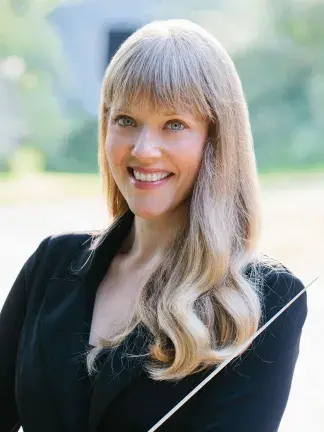
Register by October 3 to lock in Early Bird Pricing!
| Registration Type | Member Price |
|---|---|
| Early Bird Registration (Sept. 11-Oct.3) | $750 |
| General Registration (Oct. 4-Oct.27) | $850 |
| Registration Type | Member Price |
|---|---|
| Early Bird Registration (Sept. 11-Oct.3) | $750 |
| General Registration (Oct. 4-Oct.27) | $850 |
| Registration Type | Member Price | Non-Member Price |
|---|---|---|
| Early Bird Registration (Sept. 11-Oct. 3) | $750 | $850 |
| General Registration (Oct. 4-Oct.27) | $850 | $950 |
Not a member? We'd love to have you join us for this event and become part of the Chorus America community! Visit our membership page to learn more, and feel free to contact us with any questions at membership@chorusamerica.org.
| Registration Type | Non-Member Price |
|---|---|
| Early Bird Registration (Sept. 11-Oct. 3) | $850 |
| General Registration (Oct. 4-Oct.27) | $950 |
Think you should be logged in to a member account? Make sure the email address you used to login is the same as what appears on your membership information. Have questions? Email us at membership@chorusamerica.org.
| Registration Type | Price |
|---|---|
| Individual Session | $30 each |
| All Four (4) Sessions | $110 |
*Replays with captioning will remain available for registrants to watch until November 1, 11:59pm EDT.
Member Professional Development Days are specially designed for Chorus America members. If you're not currently a member, we'd love to welcome you to this event, and into the Chorus America community! Visit our membership page to learn more about becoming a member of Chorus America, and please don't hesitate to reach out to us with any questions at membership@chorusamerica.org.
| Registration Type | Price |
|---|---|
| Individual Session | $30 each |
| All Four (4) Sessions | $110 |
*Replays with captioning will remain available for registrants to watch until November 1, 11:59pm EDT.
| Registration Type | Price |
|---|---|
| Individual Session | $30 each |
| All Four (4) Sessions | $110 |
*Replays with captioning will remain available for registrants to watch until November 1, 11:59pm EDT.
Member Professional Development Days are specially designed for Chorus America members. If you're not currently a member, we'd love to welcome you to this event, and into the Chorus America community! Visit our membership page to learn more about becoming a member of Chorus America, and please don't hesitate to reach out to us with any questions at membership@chorusamerica.org.

Dr. Ingrid Lestrud enjoys an active career as a conductor and educator. Drawn to music and singing at an early age, she studied vocal performance as an undergraduate and discovered a passion for conducting choral and orchestral music. She went on to study orchestral conducting at the graduate level, eventually completing her Doctor of Music degree at Northwestern University, where she studied with Victor Yampolsky. While living in Chicago, Dr. Lestrud sang with the Chicago Symphony Chorus for several seasons under the baton of Riccardo Muti, performing in the Grammy award-winning recording of Verdi’s Requiem. She spent three years as the Voice Department Chair of the Merit School of Music, a community music school that serves over six thousand students with a focus on underserved communities. Collaborating with the Lyric Opera of Chicago, she worked with Renée Fleming to develop curriculum for Merit’s Solo Voice Program, and her choir performed for and with Ms. Fleming for special events.
Dr. Lestrud has served on the faculty of several colleges in the midwest and on the east coast, leading both choral and orchestral programs. In 2022, she won the Mid-Atlantic Teaching Artists Innovate + Create contest for her work with Performers With Purpose, a youth ensemble she founded that combines music with service projects for the community. Formerly a Principal Associate Conductor of the Grammy award-winning National Children’s Chorus, she has worked with some of the finest young singers in the nation, preparing them for concerts at Carnegie Hall, Lincoln Center, Walt Disney Concert Hall, and the Kennedy Center.
Dr. Lestrud currently serves as the Artistic Director of the Arlington Chorale, an auditioned volunteer chorus in Arlington, VA that performs well-known masterpieces and compelling new works. Through her leadership, the Chorale has successfully formed several collaborations and partnerships with non-profits not affiliated with the arts, allowing the Chorale to reach new demographics in the community and show local residents how choral music can connect to many social issues. She believes that these connections help audiences to better understand the relevance of choral music to their community, making a difference in the way they experience and appreciate choral music.